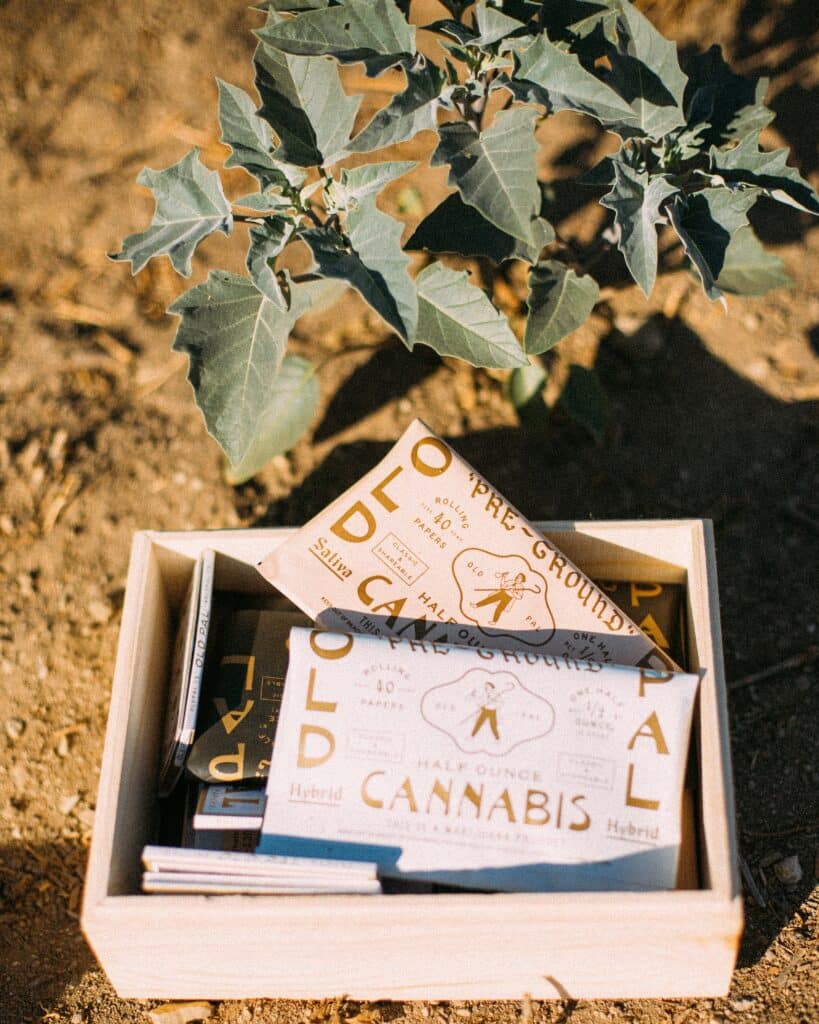Tetra-hydro-canna-bivarin. This might be the longest spelling of all the cannabinoids! We’ll just call it THCV for simplicity. It’s not new, but it might be new to you if you are recently exploring all of the latest cannabinoids to be getting attention. We know and love THC, CBD, and novel cannabinoids like Delta-8 and Delta-10, but this one is extra special for a few key reasons. Read on to find out what it is, how it feels, and how it compares to THC.
What Is THCV?
THCV is a naturally occurring cannabinoid found in cannabis. It works with the body’s endocannabinoid system (ECS) which regulates many important bodily functions. If you’ve never heard of the ECS, it helps make sure that our body maintains homeostasis by modulating things like hunger, mood, hormones, temperature, sleep, memory, and emotional processing.
Will THCV Make You High?
THCV is non-psychoactive so it won’t get you high like THC. In fact, it is believed that THCV prevents the psychological effects of THC. So, if you consume THCV on its own, you won’t get high. However, if you consume a strain with both THC and THCV you will still get high, though with less intoxication from the THC due to the THCV content.
What Does THCV Do to the Body?
THCV works in a completely opposite manner to THC when looking at how they interact with the ECS. THC is psychoactive and works with the CB1 and CB2 receptors of the ECS. These are found throughout the body, with most of the CB1 receptors in the brain and central nervous system, and the CB2 receptors found in our body’s immune system.
If THC is an agonist to the CB1 and CB2 receptors, then THCV is the non-psychoactive CB1 antagonist. It may also act as an antagonist to CB2 receptors in large enough doses. So, what does that mean? Think of THC and THCV like light switches. If THC turns on a receptor, then THCV turns it off.
This is especially true when looking at hunger cues. THC “turns on” our hunger signal, something we lovingly refer to as the “munchies”. Yet, THCV “turns off” our hunger signals, acting as a powerful appetite suppressant.

What Does THCV Feel Like?
In small to moderate doses, you won’t notice a ton of mental effects from THCV, but you will still feel it in a sense. It’s often described as offering mental clarity and a boost of energy like the one you’d expect from caffeine (minus the jitters). When consumed with THC you can expect a lightheaded, euphoric high without the intense psychoactive effects.
For more therapeutic uses, combine with CBD to feel deeply relaxed, mellow, and calm. No matter what you combine it with, reduced hunger or even forgetting to eat are other general effects. For anyone on a weight loss journey, this might be a powerful plant ally. Of course, it’s not recommended for anyone healing an eating disorder where an appetite suppressant may be harmful.
Is THCV Legal?
THCV legality depends on the source of its origin. It’s naturally found in all cannabis—which means both hemp and marijuana. If the THCV comes from marijuana, it’s only legal in states with legalized adult-use or recreational weed. Then, you can purchase THCV products inside a state-licensed dispensary.
If the THCV is hemp-derived, it’s protected under the 2018 Farm Bill. This law allows for the production and sale of industrial hemp and its byproducts so long as they contain less than 0.3% THC. This is a great way to try THCV if you don’t live in a state with legal weed, and you can buy it online.
THCV Compared
Now that you’re getting the hang of what THCV is all about, let’s see how it compares to other cannabinoids.
THCV vs THC
We already talked about the non-psychoactive nature of THCV, which is the opposite of THC. These two cannabinoids are so similar in molecular structure, but they have different parents. THC (and most other major cannabinoids) come from cannabigerolic acid (CBGA). THCV comes from cannabigerovarinic acid (CBGVA).
The difference between the two largely depends on the dosage consumed. At high levels, THCV can behave similarly to THC, though the effects are milder and shorter-lived. In low or moderate doses, THCV behaves in an opposite manner to THC and can reduce its psychoactive effects.
THCV vs THCA
Tetrahydrocannabivarinic acid (THCVA) is the acidic form of THCV, and it’s also the precursor to THC. Think of THCA as the raw version of THC. When it’s decarboxylated—heated up—it becomes activated THC. So, if you were to eat a handful of raw cannabis buds, you wouldn’t get high because the THCA hasn’t been activated yet. That’s why we smoke it or heat it to use in edibles or turn it into dabs.
When comparing THCV vs THCA, they are both non-intoxicating and offer their own individual benefits. THCV reduces hunger cravings and may help patients with diabetes. THCA is a powerful neuroprotectant and shows promise in helping fight Alzheimer’s and Parkinson’s disease. Both have strong anti-inflammatory properties.
Is THCV Stronger Than Delta-8?
THCV does not produce a stronger high because it’s not psychoactive. Delta-8 definitely has stoning power, but it’s kind of like weed light. Delta-8 THC is very similar to Delta-9 THC, but with milder effects. It gets you high, but only about half as high as regular (Delta-9) THC.

THCV Effects & Benefits
THCV has plenty of unique benefits and is having a moment in the spotlight right now for good reason.
- Appetite suppressant – this could be a gamechanger for those on a weight loss journey for personal or health-related reasons.
- Energy boost – THCV offers a natural boost in energy without any harmful side effects or “crash” after the fact.
- Blood sugar regulation – for folks with diabetes, this is an important property that can reduce the body’s resistance to insulin.
- Seizure prevention – so far, only animal studies have been done, but the results are looking promising for human trials in the near future.
THCV just might be the top new medicinal cannabinoid after we establish more research on how best to use it in therapeutic doses. For now, it’s safe to use for anyone interested in its benefits and can be found online and in dispensaries.
Top THCV Strains
If you’d like to check out THCV and see how it works for you, look for strains known to have naturally higher THCV content.
- Durban Poison
- Tangie
- Doug’s Varin
- Jack the Ripper
- Girl Scout Cookies
- Willie Nelson
- Pineapple Purps
- Pink Boost Goddess
- Chocolope Haze
- AC/DC
Each of these strains offers varying levels of THCV, but you can always ask your budtender for the test results so you can see how much each strain contains. Whether you plan to use THCV for medical, therapeutic, or recreational reasons, it’s a wonderful cannabinoid and we’re so glad it’s starting to get the attention it deserves.







